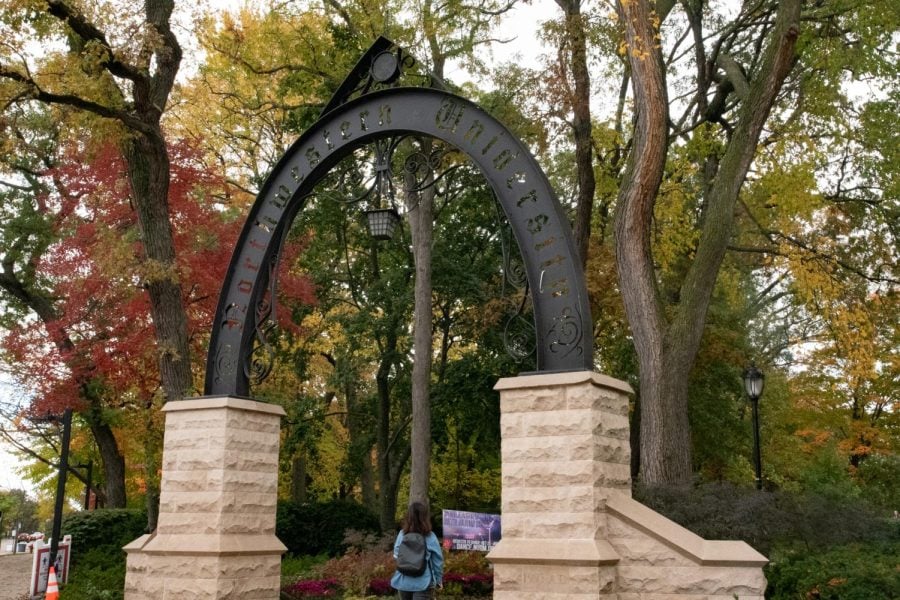The Daily Explains: Wildcat Wellness guidelines and updated winter COVID-19 campus protocols
Angeli Mittal/Daily Senior Staffer
The University moved to an “orange” campus activity level. Winter Quarter will start with a two-week modified quarantine period, entailing remote classes and required testing.
December 30, 2021
With the surge of COVID-19 cases at Northwestern at the end of Fall Quarter creating record high positivity rates, the University has modified its on-campus protocols as students prepare for their returns to campus.
The Daily breaks down everything you need to know about these updated guidelines and changes to campus activities.
Campus Activities
As of Dec. 20, the COVID-19 campus activity level moved into “orange,” bringing an approximately two-week pause on in-person activities at the beginning of Winter Quarter for the duration of the Wildcat Wellness period.
From Jan. 1 until the morning of Jan. 18, the University will enter the modified quarantine period. During this time, on-campus residents are not permitted to have guests or visitors in dorms, and lounge spaces will only be available at limited capacity. Dining halls will provide to-go options, with consumption prohibited in public spaces.
During these two weeks, classes and extracurricular activities will be held remotely.
In a Dec. 31 email, the University announced the Henry Crown Sports Pavilion will be open by reservation only during Wildcat Wellness.
The status of in-person activities will be reevaluated after the first week of Wildcat Wellness, including the resumption of certain activities during the second week. As of now, all in-person activities are scheduled to resume normal operation on Jan. 18.
Vaccination
NU students, faculty and staff are required to obtain and report an approved COVID-19 booster shot by Jan. 30 or within 30 days of becoming eligible.
Individuals ages 18 and older are eligible for a Pfizer or Moderna booster shot if they completed their primary vaccination series at least six months ago. Those who received the one-dose Johnson & Johnson vaccine at least two months ago are also eligible. Individuals ages 16 or 17 are also eligible for a Pfizer booster shot following the same six-month criteria.
The Centers for Disease Control and Prevention guidelines allow adults to “mix-and-match” doses, meaning that individuals can receive a booster shot from a manufacturer different from that of their primary vaccination series
The University’s booster shot requirement does not apply to individuals with an approved exemption to the vaccine requirement.
Many retail pharmacies in or near Evanston offer walk-in booster shots and primary series vaccinations, including CVS, Jewel-Osco, Meijer and Walgreens.
Northwestern students, faculty and staff can also schedule booster shot appointments at some Northwestern Medicine Immediate Care Centers in Chicago. Individuals are asked to provide their vaccination record and follow NM protocols at the centers.
Testing
Students are asked to complete and report results from two at-home COVID-19 tests if possible: one 36 hours prior to returning to campus and one as soon as they arrive to campus.
Students can pick up at-home testing kits at Norris University Center on Jan. 2 from 10 a.m. to 5 p.m. as well as from Jan. 3 through Jan. 7 from 8 a.m. to 5 p.m. On-campus residents will also receive testing kits in their dorm rooms when they arrive on campus.
During each of the two weeks of Wildcat Wellness, students must take an in-person COVID-19 test. The Donald P. Jacobs Center will be open on Jan. 2 from 9 a.m. to 4 p.m. as well as for extended hours on weekdays from 8 a.m. to 5 p.m. during the modified quarantine period.
The University asks students with COVID-19 symptoms, including cough, fever or nasal congestion, to delay their arrival on campus.
Quarantine and Isolation Procedures
As of Dec. 27, the CDC modified its isolation guidelines to allow a shortened isolation period of five days for those who test positive for COVID-19, given they are asymptomatic or have resolving symptoms — defined as no fever for 24 hours — by the fifth day of isolation.
The organization also recommends a five-day quarantine period for unvaccinated individuals or those who are eligible for a booster but have not yet obtained one and are exposed to COVID-19.
NU announced in the Dec. 31 email the shortened isolation period may apply to individuals who test positive for COVID-19 and are asymptomatic. Those who fit this criteria will only be released from quarantine if they receive a negative rapid antigen test result on day five or later.
Students who live off-campus are asked to isolate themselves in their off-campus residences. Students on-campus will be relocated to isolation housing, space permitting; otherwise, they’ll be required to self-isolate in their dorm rooms.
Vaccinated individuals who have received a booster and are identified as a close contact to someone who tested positive for COVID-19 will not be required to quarantine. However, the University does require an in-person test five days after exposure.
Unvaccinated individuals or those who have not yet received a booster at least six months after their primary vaccination series are required to quarantine for five days if they are identified as a close contact to someone with a positive case. They will be released if they receive a negative test result on day five.
Masking
Regardless of vaccination status, all students, faculty and staff are required to wear masks in all indoor spaces, a policy that remains the same from Fall Quarter.
This story has been updated to reflect the University’s most current COVID-19 guidelines and protocols.
Email: [email protected]
Twitter: @amittal27
Related Stories:
— Northwestern goes remote for first two weeks of January












